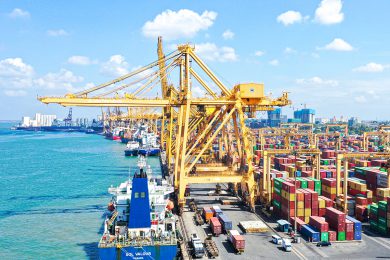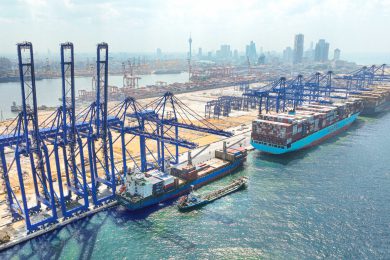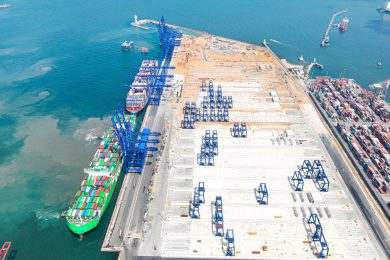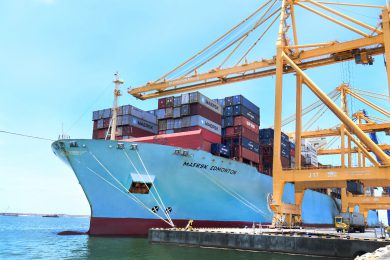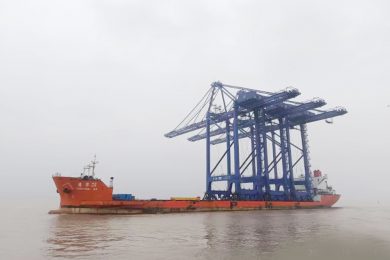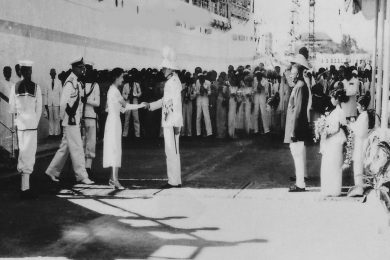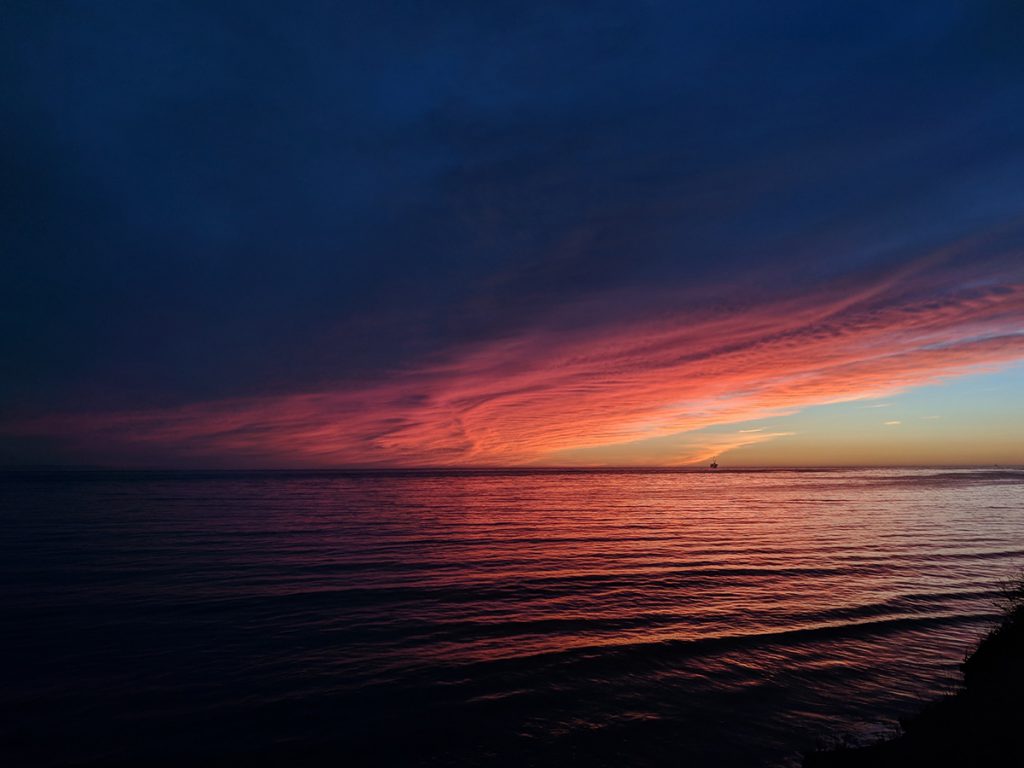Following excerpts taken from the book, Sea Power: The History And Geopolitics Of The World’s Oceans, written by Admiral James Stavridis, published by Penguin Random House
Shakespeare, in his immortal sea drama The Tempest, said, “We are such stuff as dreams are made on, and our little life is rounded with a sleep,” referring to the small and confined dimensions of our individual lives. It is a haunting passage, and one I have thought about a great deal. The play opens with a massive storm at sea, and the line has always had profoundly nautical implications for me. In my nearly four decades as a Navy sailor, when all the days I spent on the deep ocean, out of sight of land, are totaled, they add up to nearly eleven years. The endless vistas of the open ocean, upon which I gazed for more than a decade of my life, provide quite a setting for such dreaming. And in those days, when I looked at the ocean, I always felt a sense of seeing the same view that millions upon millions of other deep-sea mariners, coastal sailors, and even land dwellers close to the ocean saw. Like the fishermen, traders, pirates, harbor pilots, and indeed sailors of every ilk who went down to the sea in ships of all kinds, we have all seen the same ocean views. In a way, it is like looking at eternity; to gaze upon it for an hour, a day, a month, or a lifetime reminds us gently that our time is limited, and we are but a tiny part of the floating world.
In addition to simply warning us not to overimagine the importance of our own small voyages on this earth, Shakespeare’s line also makes us consider quite literally what we are indeed made of. It is worth remembering that each of us is, essentially, largely made of water. When a human baby is born, it is composed of roughly 70 percent water. It has always fascinated me that roughly the same proportion of the globe is covered by water—just over 70 percent. Both our planet and our bodies are dominated by the liquid world, and anyone who has sailed extensively at sea will understand instinctively the primordial tug of the oceans upon each of us when we look upon the sea.
I still dream about being on a ship, and part of why I wanted to write a book about the oceans is in response to those dreams. It often happens as I nod off on my now landlocked bed that I dream of the faint rumble of a ship’s engines and feel the rolling of the waves pushing and rocking the hull of my ship. When I rise and head up to the bridge, it is always on a bright day, with the clouds hanging in front of the bow and the ship pushing through the sea. I never know exactly where the dream will take me but I always end up approaching the shore, and when I do, I feel a pang of regret to leave the ocean. The approaches to land are always difficult in my dreams, and the ship often finds herself running out of deep water and becomes rapidly in danger of foundering on a beach or up a river or upon a reef. I always wake up before the ship finally impales herself ashore, and I always wish I had stayed farther out to sea.
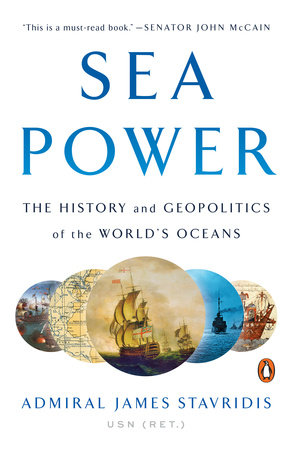
The British navy, which dominated the world’s oceans for so many years, truly and deeply understood the interconnected character of the global waterways. “The sea is one” is an expression you will hear from a Brit. I heard it first when I was eighteen years old and a second-year student, called a midshipman, at the U.S. Naval Academy in Annapolis, Maryland. My navigation instructor was a crusty British lieutenant commander, who seemed incredibly old and salty—he was probably in his mid-thirties, and who could imagine being so ancient? This Old Man of the Sea was a crack hand with a sextant, a nautical almanac, and a tide table to be sure, but what he really taught me was the way in which all the world’s oceans are at once connected—obvious enough given the continuous flow of water around the continents—but also separate. He would painstakingly discuss each of the great global bodies of water—the Pacific, the Atlantic, the Indian, and the Arctic oceans—as well as the major tributary bodies: the Mediterranean Sea, the South China Sea, the Caribbean. The lieutenant commander could talk for an hour about a particular strait between the Indian Ocean and the Pacific Ocean, and how the water looked in the winter, and why it was a crucial passage. I learned a great deal from him, not only about the science and art of navigating a destroyer, but also about oceanography, maritime history, global strategy, and how the tools of empire so often were dusted with dried salt, like the taffrails of a sailing cutter. You could drop a plumb line from my days as a teenager at Annapolis through the arc of nearly four decades as a Navy officer and finally end up on the pages of this book.
The oceans were the place I spent much of the early years of my career. I sailed through them all, validating the lessons he taught me, improving my own ship handling and navigational skills, and learning to lead men and women at sea. As my understanding and appreciation of the international system increased—accelerated by a PhD at the Fletcher School of Law and Diplomacy of Tufts University, where I am now a very deskbound admiral—I came to understand the influence of the sea on geopolitics. It is no coincidence that so many of the great national enterprises of the past two thousand years were influenced by sea power, and that continues to be true today. The sea is one indeed, particularly as a geopolitical entity, and will continue to exert an enormous influence on how global events unfold—from the high tension of the South China Sea, to the cocaine smuggling of the Caribbean, to the piracy off the coasts of Africa, to the unfortunate reemergence of a new cold war in the Greenland-Iceland–United Kingdom gap in the North Atlantic. Some observers may not be interested in the geopolitics of the oceans, but they will haunt our policy and our choices in this turbulent twenty-first century. The oceans will matter deeply to every aspect of human endeavor.
When we go to sea—whether in a warship for a nine-month combat cruise, or a week on a Carnival cruise liner, or just a day sail out of sight of land—we are launching ourselves into another dimension altogether. The world shudders and shakes beneath us, the wind cuts more sharply with nothing to slow its pace, the weather skims by our unprotected hull, the dolphins sometimes swim alongside for hours—it is a very different world. In a primal sense, we are “an ocean away” every time we go to sea and can no longer see the land. When you are on a hull, however large or small, and come up on the deck and slowly pivot around to see nothing but the ocean stretching away from you, stop and measure the moment in the passage of your life: you are seeing the same view, the same endless ocean that Alexander the Great saw as he sailed the eastern Mediterranean, that Napoleon gazed upon on his long, sad voyage to exile in the South Atlantic, and that Halsey saw as he lashed his Fast Carrier Task Force into combat in the western Pacific. In that sense, as a sailor, you are at once an ocean away from the world of the land, but also connected to a long, unbroken chain of men and women who have set their course for the open ocean.
It is those two important aspects of the oceans that I have tried to capture in this volume: the personal experience of a mariner at sea, and the geopolitics of the oceans and how they constantly influence events ashore. Only by understanding both the individual and personal experiences of sailors and trying to pour that distinct nautical culture into the larger questions of how the oceans drive the international system can we fully appreciate the value and the challenge of the sea. In that sense, this is a book that could have been written by many different sailors at any point in the long, long history of our collective human voyages both over the ocean and through time. Writing it now, in this century, is simply an attempt to take a vivid snapshot of those two tendrils of human experience—a sailor’s life at sea and the strategic impact of the oceans—upon the vast water world we call earth.
Let’s get under way.
Copyright © by James Stavridis



